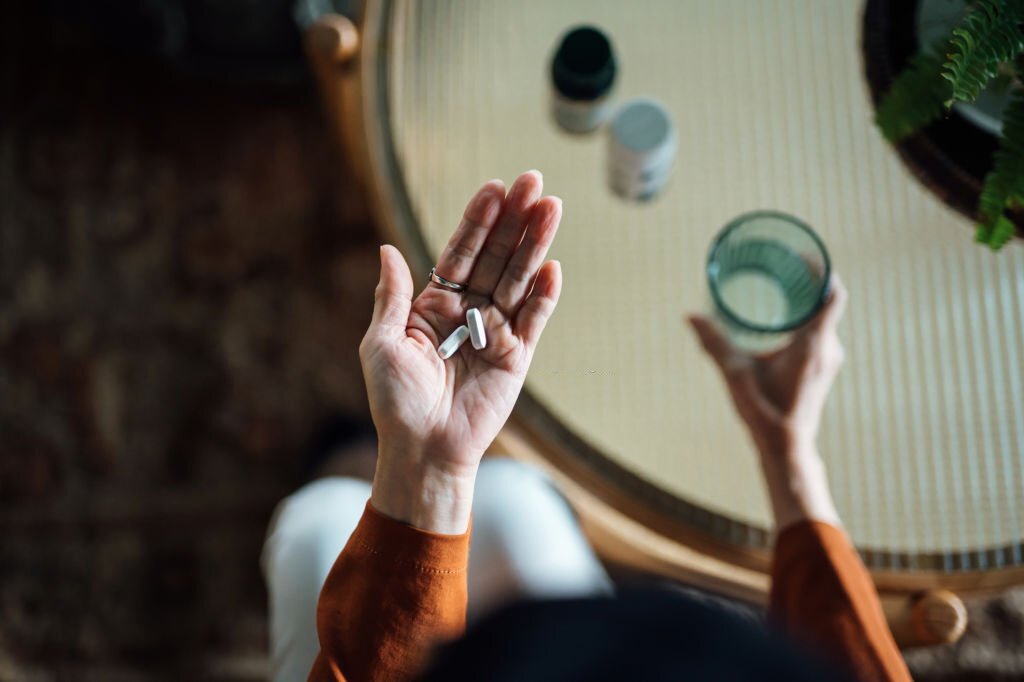HEALTH
What is Medication for Anxiety and Depression?

It is frequently used in conjunction with therapy and is generally safe and helpful for anxiety treatment. Depending on the severity of the symptoms, other underlying medical disorders, and other unique circumstances, medication may be a short-term or long-term therapeutic choice. However, discovering the medication for anxiety and depression that works best for you frequently requires patience and time.
In several states, doctors (including family practitioners, pediatricians, OB-GYNs, and psychiatrists) and nurse practitioners frequently prescribe medications. Over 1 in 6 Americans use a mental medication (such as an antidepressant or a sedative). And now, people are also moving on to Transcranial magnetic stimulation therapy for stress treatment. There are various positive benefits of tms therapy which is helpful for a stressed person
According to the Medical Expenditure Panel Survey (MEPS), a survey was conducted in 2013 that gathered data on the use and expense of healthcare in the United States. According to the poll, antidepressants were the most often used category of mental medication, with 12 percent of individuals saying that they had filled a prescription for them.
What are anxiety and depression?
Depression or Anxiety are mental health conditions. Anxiety disorders and lifelong severe depressive disease co-occur in about 45% of individuals, indicating that they do so often.
Anxiety:
Fear and anxiety are strongly related. As a result, the person has a future-focused mood and behavioral reaction in which they get ready for an impending event or circumstance that they view as dangerous. Over time, the fear may worsen and become disruptive to daily living. Generalized anxiety disorder, panic disorder, and phobias are a few examples of anxiety disorders.
Depression:
Mental illness includes depression. It could cause symptoms like:
- Persistent sorrow
- Hopelessness
- Irritability
- having trouble concentrating and sleeping
- Suicidal ideation
Anxiety and depression can affect a person’s day-to-day activities.
Selective Serotonin Reuptake Inhibitors (SSRIs):
By preventing specific brain nerve cells from reabsorbing or retaking serotonin, SSRIs reduce symptoms. More serotonin is now available, which elevates mood. When compared to tricyclic antidepressants, SSRIs (citalopram, escitalopram, fluoxetine, paroxetine, and sertraline) typically had fewer side effects.
However, frequent adverse effects like weight gain, sexual dysfunction, and insomnia are also present. All anxiety disorders are thought to respond well to them, though treating obsessive-compulsive disorder, or OCD, frequently necessitates greater doses.
Benzodiazepines:
This class of medication for anxiety and depression is widely used for depression treatment-resistant anxiety disorders and to regulate anxiety in the short term. For the treatment of post-traumatic stress disorder, they are not advised.
Alprazolam, clonazepam, diazepam, and lorazepam are some of the most powerful benzodiazepines for increasing relaxation and easing anxiety-related muscle tension and other physical symptoms. Increased doses may be necessary for the same effect with prolonged use, which could result in issues with tolerance and dependence.
Tricyclic Antidepressants:
Many doctors choose tricyclic antidepressants over benzodiazepines due to concerns regarding the long-term use of these drugs (amitriptyline, imipramine, and nortriptyline).
They can have substantial side effects, such as orthostatic hypotension (drop in blood pressure on standing), constipation, urine retention, dry mouth, and blurred vision, despite being useful in treating some anxiety disorders (but not Social Anxiety Disorders).
Even if you are not certain a symptom is brought on by a medicine, if you encounter adverse effects, speak with your doctor.
Without first seeing the prescribing doctor, never discontinue taking a prescription; doing so suddenly can be harmful to your health. Only when taken exactly as prescribed by your doctor will medications work, and even then, not all symptoms of an anxiety condition may be fully alleviated.
Serotonin-Norepinephrine Reuptake Inhibitors (SNRIs):
The venlafaxine and duloxetine class of serotonin-norepinephrine reuptake inhibitors, or SNRIs, are renowned for their dual mode of action, which involves raising levels of the neurotransmitters serotonin and norepinephrine while decreasing their reabsorption into brain cells.
As with other medications for anxiety or depression, there may be adverse effects, such as gastrointestinal distress, sleeplessness, headache, impotence, weight gain, and a slight rise in blood pressure.
These drugs are regarded as equally effective as SSRIs, making them first-line anxiety and depression treatment for anxiety disorders, but not for obsessive-compulsive disorder, for which SSRIs are the chosen first-line therapy.
Beta-Blockers:
Beta-blockers may be recommended by a doctor to treat anxiety and depression problems.
Doctors frequently utilize the class of medications known as beta-blockers to address cardiac issues. They block the effects of the hormones noradrenaline and adrenaline, which are involved in the body’s fight-or-flight response.
Monoamine Oxidase Inhibitors:
Antidepressants known as monoamine oxidase inhibitors (MAOIs) stop monoamine oxidase from doing its job. Serotonin, noradrenaline, and dopamine are all broken down by the enzyme monoamine oxidase. The levels of these substances rise in the brain when a person takes MAOIs, having a therapeutic effect.
Final Words:
Anxiety and depression are mental health issues that have an impact on mood and emotion. Depression and low mood are related to anxiety. Both diseases can be treated with some drugs, including SSRIs, SNRIs, and TCAs. Others focus on a single illness.
CBT, exposure therapy, counseling, and support groups are non-drug treatments for anxiety and depression. If someone is exhibiting signs of anxiety or despair, they should consult a doctor. They can get advice from a doctor on the best courses of action.
